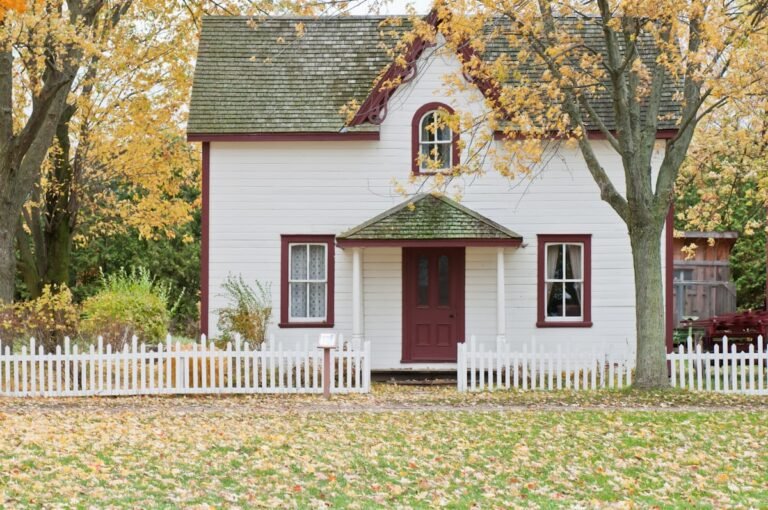Purchasing a modular home can be an exciting venture, offering flexibility, customization, and affordability. However, financing a modular home can present unique challenges, especially if you want to avoid traditional bank mortgages. Many prospective homeowners are unaware of alternative financing options that can make the process smoother and often more affordable. In this blog post, we will explore various financing methods for modular homes, highlighting what to consider and how to navigate the landscape effectively. If you’re looking for options and resources, feel free to visit page for more information.
Understanding Modular Home Financing
What is Modular Home Financing?
Modular home financing refers to the various financial options available specifically for purchasing modular homes. Unlike traditional homes, modular homes are often financed differently due to their unique construction process and classification. Understanding these differences is crucial when seeking funding.
Why Avoid Traditional Bank Mortgages?
While traditional bank mortgages are a common choice, they may not always be the best option for financing a modular home. High-interest rates, strict qualification criteria, and lengthy approval processes can make bank mortgages cumbersome. Exploring alternative financing can often lead to quicker approvals and more favorable terms.
Alternative Financing Options for Modular Homes
1. Personal Loans
Personal loans can be a viable option for financing your modular home. These loans typically come with higher interest rates than mortgages but can be approved quickly, making them suitable for those who need immediate funding.
Pros:
- Quick approval process
- No collateral required
Cons:
- Higher interest rates
- Shorter repayment terms
2. Home Equity Loans
If you already own a property, a home equity loan allows you to borrow against the equity you’ve built up in your home. The funds can then be used to purchase a modular home.
Pros:
- Lower interest rates compared to personal loans
- Potential tax benefits
Cons:
- Your home is collateral, risking foreclosure
- Requires sufficient equity
3. FHA Loans
The Federal Housing Administration (FHA) offers loans specifically for modular homes, often with lower down payment requirements and more lenient credit standards. This can be an excellent option for first-time buyers.
Pros:
- Low down payment (as low as 3.5%)
- Flexible credit requirements
Cons:
- Mortgage insurance is required
- Limits on the amount you can borrow
4. Manufacturer Financing
Many modular home manufacturers offer in-house financing or partner with lenders to provide financing options. This can simplify the process, as you’ll deal directly with the builder.
Pros:
- Streamlined process
- Possibly lower fees
Cons:
- Limited options compared to traditional lenders
- Interest rates may vary
5. USDA Loans
If you’re planning to place your modular home in a rural area, you might qualify for a USDA loan. These loans are designed for low-to-moderate-income homebuyers and offer zero down payment options.
Pros:
- No down payment required
- Competitive interest rates
Cons:
- Geographic restrictions
- Income limits apply
Tips for Securing Financing
1. Improve Your Credit Score
A higher credit score can significantly improve your chances of securing favorable financing terms. Take steps to pay down debts, make timely payments, and dispute any inaccuracies on your credit report.
2. Prepare Your Documentation
Gather all necessary documentation, including income verification, tax returns, and debt information. Being organized can speed up the approval process.
3. Shop Around
Don’t settle for the first financing option you encounter. Compare rates and terms from different lenders to ensure you get the best deal possible.
4. Consult a Financial Advisor
If you’re unsure about the best financing option for your situation, consider consulting a financial advisor. They can help you navigate your choices and find the best solution.
5. Understand the Total Cost
Be aware of all costs associated with financing, including interest rates, fees, and insurance. Understanding the total cost will help you make informed decisions.
FAQs About Financing Modular Homes
1. Can I finance a modular home with bad credit?
Yes, some financing options, like FHA loans, are more lenient with credit scores. It’s best to explore multiple options to find one that suits your financial situation.
2. How much of a down payment do I need for a modular home?
Down payment requirements vary by financing option. FHA loans may require as little as 3.5%, while personal loans may not require any down payment.
3. Are there specific lenders for modular homes?
Yes, many lenders specialize in modular home financing. You can also check with manufacturers, as they often have financing options available.
4. What is the average interest rate for personal loans?
Interest rates for personal loans can range from 6% to 36%, depending on your credit score and the lender. It’s essential to shop around for the best rates.
5. What if I want to place my modular home in a rural area?
You may qualify for USDA loans, which are specifically designed for rural home purchases and offer favorable terms, including zero down payment.
Conclusion
Financing a modular home without relying on traditional bank mortgages is not only possible but can also be advantageous. By exploring alternative financing options, you can find solutions that better fit your financial situation and homeownership goals. Always conduct thorough research, compare your options, and consult professionals if needed. If you’re ready to take the next step and find homes that suit your needs, consider visiting Home Nation for information and resources tailored to your journey. With the right financing strategy, your modular home dream can become a reality.

